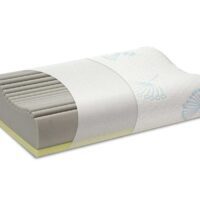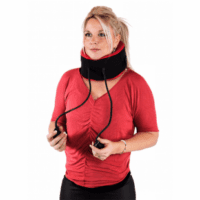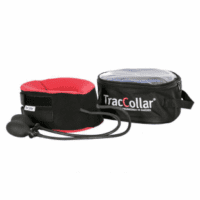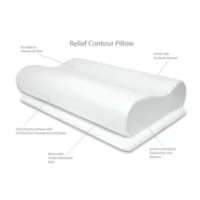Whiplash
Article by Shane Armfield

What is Whiplash?
Whiplash occurs when sudden acceleration-deceleration forces impact the neck. This term encompasses a range of issues affecting muscles, joints, bones, ligaments, discs, and nerves.
What Causes Whiplash?
Whiplash typically results from a traumatic event involving sudden acceleration-deceleration forces. While it’s commonly associated with motor vehicle accidents, other potential causes may include activities like roller-coasters, bungy jumping, or sports-related collisions.
What are the Symptoms of Whiplash?

Symptoms and their severity can vary significantly among individuals. The most frequently reported symptom is neck pain or stiffness, which can begin immediately after the injury or several days later. Additional symptoms may include:
- Neck pain or stiffness
- Headaches
- Shoulder pain
- Arm pain
- Upper back pain
- Dizziness
- Altered sensation
- Weakness
- Visual disturbances
- Hearing difficulties
- Difficulty speaking or swallowing
- Difficulty concentrating
How is Whiplash Diagnosed?
Whiplash is diagnosed clinically based on your injury history and clinical testing. Radiological tests may help identify specific structural damage, such as fractured vertebrae, disc injuries, or muscle and ligament issues.
Red Flags
Due to the traumatic nature of whiplash injuries, there’s a risk of more acute or sinister injuries that need to be ruled out before treatment. Your physiotherapist and GP can identify anything abnormal that warrants further investigation. Please notify a health professional if you have (or develop) any of the following:
- Bilateral pins and needles
- Gait disturbances
- Progressively worsening weakness or sensation problems
- Pins and needles or numbness in the face
- Difficulty speaking or swallowing
- Drop attacks/fainting
- Bladder or bowel problems
When Should You Be Concerned About Your Neck Pain?
Whiplash Treatment
Research indicates that the most effective way to treat this injury is a combination of tailored treatment options. An experienced rehabilitation practitioner should guide your treatment direction. Potential treatment methods include:
- Continuing your regular daily routine: Staying active!
- Active treatment guided by your physiotherapist.
- Exercises to promote flexibility, strength, and good posture.
- Fine neck muscle and proprioception retraining programs, instructed by a physiotherapist.
- Acupuncture or dry needling for pain relief.
- Education about the injury: Ask questions!
- Joint mobilisation to alleviate stiff or scarred joints.
- Medication to manage pain and muscle tension or to provide psychological support.
- Psychologist advice.
- Vestibular rehabilitation if dizziness is a symptom.
- Soft tissue massage for short-term muscle tension relief.
Physiotherapy
Most whiplash patients will improve within a few weeks of the injury.
Physiotherapy aims to:
- Reduce neck pain, headaches, and inflammation.
- Restore normal joint range of motion.
- Strengthen neck and upper back muscles.
- Improve neck posture.
- Normalise muscle lengths and resting muscle tension.
- Address deficits in neural tissue extensibility.
- Enhance neck proprioception, fine motor control, and balance.
- Enhance your ability to handle everyday activities, as well as more stressful ones like lifting.
- Minimise the risk of future neck pain or disability.
We strongly recommend discussing your specific whiplash injury with a physiotherapist after a thorough examination, as they can assist with whiplash-associated disorders.
Your Prognosis
Will you recover? Yes, but whiplash injuries may take several days to several months to rehabilitate. Recovery time varies from person to person. Fortunately, most whiplash sufferers recover quickly with actively guided treatment. Other factors, including depression and trauma-related anxiety, can impact recovery, so discussing these issues with a qualified health professional is essential for the best chance of recovery.
Whiplash Prevention Tips
Rochedale - Call 38410277
Book Online: RochedaleSalisbury - Call 32751044
Book Online: SalisburySandgate - Call 32691122
Book Online: SandgateArticle by John Miller
Neck Pain Causes
Common Causes of Neck Pain
Neck pain is a widespread issue that can affect your daily activities. It ranges from mild discomfort to severe, debilitating pain, and is often linked to various neck pain causes, including muscle strain, poor posture, or injuries. Left untreated, neck pain can interfere with your quality of life, making it difficult to move your head or perform everyday tasks.
Anatomy of the Neck
The neck or cervical spine consists of seven small vertebrae that support the head. It includes muscles, joints, discs, and nerves that work together to enable movement and stability. Understanding the structure of the neck helps explain why certain factors lead to neck pain causes, such as neck joint injuries, facet joint pain, or wry neck.


Neck Pain Causes
Neck pain causes are unique to the individual but there are some common contributors:
- Muscle Strain – Often due to overuse, such as spending long hours hunched over a computer or smartphone. Muscle strain can lead to muscle-related injuries, like neck sprain.
- Poor Neck Posture – Sitting or standing with poor alignment can put strain on neck muscles and joints, contributing to conditions like text neck.
- Whiplash Injuries – Sudden movements, like those in car accidents, can cause whiplash, leading to neck strain or sprain.
- Degenerative Neck Conditions – As you age, the cervical discs can wear down, leading to conditions like degenerative disc disease or bulging, or herniated discs. Likewise your facet joints and bones deteriorate resulting in cervical spondylosis.
- Pinched Nerves – A compressed nerve in the neck can cause radiating pain, often felt down the arm, commonly known as cervical radiculopathy or nerve-related/referred arm pain.
- Cervicogenic Dizziness – Neck pain linked to dizziness or balance problems is referred to as cervicogenic dizziness.
- Occupational Factors – Repetitive motions, heavy lifting, or awkward positions at work can trigger neck pain. Consider an online office ergonomic assessment for workplace adjustments.
- Other Neck Pain Causes - There are multi-source neck pain causes that can indirectly or directly cause neck pain. Some of these occur without a known injury but it is important to address these components for successful neck pain management.
Neck-Origin Headaches
Neck-origin headaches, also known as cervicogenic headaches, are caused by issues in the neck, such as muscle tension, joint dysfunction, or nerve irritation. These headaches typically start at the base of the skull and radiate to the forehead, temples, or behind the eyes. Poor posture, prolonged sitting, or neck injuries can trigger these headaches. Physiotherapy treatments, such as targeted exercises and manual therapy, can effectively reduce symptoms by addressing the root cause in the neck.
Risk Factors
Several factors can increase your risk of neck pain, including poor posture, prolonged computer use, stress, and ageing. Bone-related injuries like osteoporosis, spinal stenosis, spondylosis, or scoliosis are also common in older individuals. Athletes who engage in contact sports are at higher risk for conditions like facet joint pain.
When to Seek Medical Advice
If your neck pain is accompanied by symptoms such as numbness, weakness, or persistent headaches, it’s important to seek medical attention. These may be signs of more serious conditions, such as herniated discs, or other disc-related injuries. That is why profession assessment to determine your neck pain causes is important.
Read more: When is Neck Pain Serious?
Diagnosis and Tests
When visiting a physiotherapist or healthcare professional for neck pain, you may undergo a physical examination, along with imaging tests like X-rays, MRIs, or CT scans to identify the root cause. Your physiotherapist will assess your range of motion and determine any nerve pain or muscle issues contributing to the condition.
Treatment Options
Treatment depends on the cause of your neck pain and may include physiotherapy, massage, or in severe cases, surgery. Common conditions like wry neck may respond well to targeted physiotherapy exercises, while others, such as ankylosing spondylitis, fibromyalgia, or rheumatoid arthritis may require additional medical intervention.
Prevention Strategies
Preventing neck pain starts with good posture. Ensure your work environment supports proper alignment, and take regular breaks if you sit for long periods. Posture improvement products and ergonomic chairs can help prevent future issues.
Long-Term Management
Chronic neck pain requires ongoing management through lifestyle changes, regular physiotherapy, and exercise. Incorporating stretches and exercises into your daily routine can help maintain flexibility and strength, reducing the risk of pain recurrence. Neck pain products such as neck pillows and supports may also assist in managing discomfort.
Latest Research on Neck Pain
Teichert et al. (2023) conducted a systematic review and meta-analysis, finding moderate-certainty evidence that physiotherapy exercises reduce the risk of neck pain within 12 months. The review included five trials with 1,722 participants, mostly office workers, comparing exercise interventions to minimal or no intervention. The results showed exercise nearly halved the risk of neck pain (OR 0.49, 95% CI: 0.31, 0.76). Despite some sensitivity concerns, the study supports physiotherapy exercises as an effective short-term prevention strategy for neck pain.
What to Do Next?
If you’re experiencing neck pain, seek advice from your physiotherapist. Early intervention can help prevent long-term problems and improve your quality of life. A physiotherapist can create a personalised treatment plan to address your specific needs.
Rochedale - Call 38410277
Book Online: RochedaleSalisbury - Call 32751044
Book Online: SalisburySandgate - Call 32691122
Book Online: SandgateNeck Pain Causes FAQs
Can neck pain be prevented?
Yes, neck pain can often be prevented with proper posture, regular exercise, and ergonomic adjustments to your daily routine.
Read more: Preventing Neck Pain with Posture Changes
What causes neck pain when looking down?
Neck pain when looking down is often due to poor posture, such as sitting hunched over a desk or device. Strengthening your neck and back muscles can help alleviate the pain.
Read more: Posture-Related Neck Pain
When should I worry about neck pain?
Seek medical advice if your neck pain persists for more than a few days, or if it’s accompanied by numbness, weakness, or severe headaches.
Read more: When to Seek Help for Neck Pain
Related Articles
- Neck Pain Overview
Discusses causes, symptoms, and treatment options for neck pain. - Neck Posture and Pain
Explains how poor posture contributes to neck pain and prevention tips. - Whiplash Injury
Information on symptoms, treatment, and recovery from whiplash-related neck pain. - Pinched Nerve in the Neck
Learn about causes, symptoms, and treatment for pinched nerves. - Text Neck Syndrome
Discusses neck pain caused by prolonged use of phones and tablets. - Cervicogenic Dizziness
Examines the link between neck pain and balance issues. - Degenerative Disc Disease
Provides insight into how ageing impacts neck pain through disc degeneration. - Neck Headaches
Explores how neck issues can trigger headaches and what to do about it. - Posture Correction Products
Explains how ergonomic products can help alleviate neck pain. - Thoracic Outlet Syndrome
Discusses this condition, which can cause neck and arm pain. - Neck Pain Causes
Explore common causes of neck pain and when to seek medical care. - 7 Ways to Relieve Neck Pain
Learn effective methods to relieve neck pain, including exercises and stretches. - Chronic Neck Pain Management
Discusses long-term management strategies for chronic neck pain.
Social Media - Follow Us for Free Tips
Stay informed on how to prevent and treat neck pain by following us on social media. We regularly share tips and exercises to help you keep your neck healthy and pain-free.
Neck Pain FAQs
Your Comprehensive Guide
General Neck Pain FAQs
Concerned About Neck Pain - When Should You Be?
- Learn the signs indicating when neck pain warrants a healthcare professionals visit.
Neck Pain Causes - What Are The Common Culprits?
- Explore the most frequent causes of neck pain.
Preventing Neck Pain - How Can You Avoid Neck Pain in the First Place?
- Discover strategies to prevent neck pain before it starts.
Text Neck - What Is It Exactly?
- Understand how modern technology contributes to neck pain.
Cervical Radiculopathy - How Does It Feel?
- Get insights into the symptoms and impact of cervical radiculopathy.
Age and Neck Pain - Is Neck Pain More Common as You Get Older?
- Find out how aging affects neck pain.


FAQs on Neck Treatment
Your Road to Relief Relieving Neck Pain - What Can You Do?
- Explore various methods to relieve neck pain.
Dealing with a Wry Neck - Can You Fix It?
- Learn about treatments and remedies for a wry neck.
Banishing Neck and Arm Pain - How's It Possible?
- Understand the connection between neck and arm pain and how to alleviate it.
Physiotherapy FAQs - What to Expect from Physiotherapy for Neck Pain?
- Know what to expect from physiotherapy sessions for neck pain.
Medication FAQs - When is Medication Necessary for Neck Pain?
- Learn about the role of medication in managing neck pain.
Surgery FAQs - When is Neck Surgery Considered as an Option?
- Find out when surgery becomes a necessary option for neck pain.
Neck Exercises
Exercise FAQs - What Neck Exercises Can Help Alleviate Discomfort?
- Discover exercises that can help in reducing neck discomfort.
Strengthening and Stabilising Your Neck - How It's Done
- Learn techniques to strengthen and stabilise your neck.
Stretching FAQs - How Can Stretching Benefit Your Neck Health?
- Understand the benefits of neck stretching exercises.
Neck, Vertigo & Dizziness FAQs
Can Your Neck Trigger Vertigo or Dizziness?
- Explore the link between neck issues and vertigo or dizziness.
Headache FAQs
Solving Neck-Related Headaches
- Find solutions for headaches caused by neck problems.
Bid Farewell to Neck Headaches - How to Do It
- Learn strategies to overcome neck-related headaches.
Posture FAQs
Correcting Years of Poor Posture
- Get tips on how to correct long-standing poor posture.
Improving Your Posture - What Steps to Take
- Understand the steps necessary for improving your posture.
Posture Improvement Products & FAQs - Your Posture Allies
- Discover products that can aid in improving your posture.
Lifestyle and Ergonomics FAQs
How Can Your Daily Habits Affect Neck Health?
- Learn how everyday habits impact neck health.
Pillow FAQs
Finding the Perfect Pillow
- Tips on how to find the ideal pillow for neck support.
Pillows: The Ultimate Guide
- A comprehensive guide to choosing the right pillow.
Healthiest Sleeping Postures - What Are They?
- Understand the best sleeping postures for neck health.
Choosing the Best Pillow - What Works for You?
- Guidance on selecting the best pillow based on individual needs.
Identifying an Unsupportive Pillow - The Telltale Signs
- Learn the signs of a pillow that doesn't provide adequate support.


































































